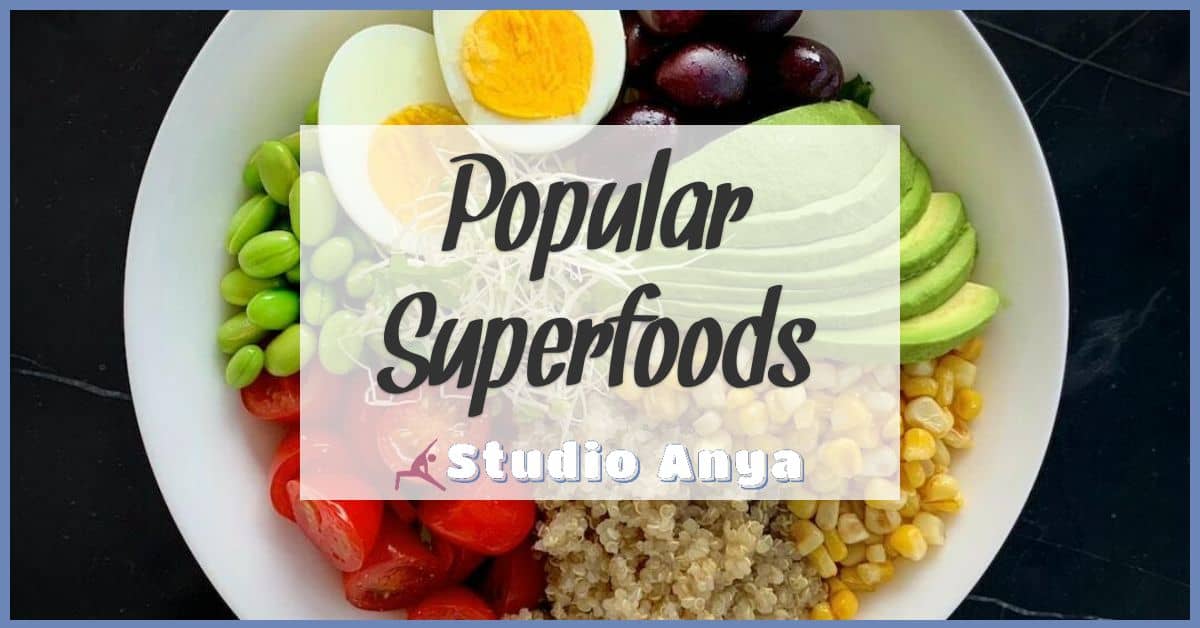I’ve always been amazed by how much our gut impacts our overall health. It’s not just about breaking down food; our digestive system plays a key role in energy, immunity, and even mood. That’s where probiotics come in—those tiny, live microorganisms that promise big benefits for our digestion.
You’ve probably seen probiotics in yogurt commercials or on supplement shelves, but they’re more than just a trendy health buzzword. These “good bacteria” work behind the scenes to keep our gut balanced and functioning smoothly. From easing bloating to supporting nutrient absorption, they’re like little helpers making sure everything runs as it should.
Understanding how probiotics influence digestion can feel overwhelming, but it doesn’t have to be. Let’s break it down and explore how these microscopic allies can make a real difference in how we feel every day.
What Are Probiotics?
Probiotics are live microorganisms that offer health benefits when consumed in adequate amounts. They play an essential role in balancing gut health, which directly impacts digestion and overall well-being.
Definition And Common Sources
Probiotics are beneficial bacteria and yeasts that naturally occur in the body, particularly in the digestive system. They support digestion by fostering a healthy gut microbiome, which helps break down foods and absorb nutrients.
You can find probiotics in fermented foods and supplements. Common sources include yogurt, kefir, sauerkraut, kimchi, miso, and tempeh. I often encourage my clients to incorporate these into their diets as they pair well with a mindful eating routine. For example, adding miso soup to a meal or enjoying a spoonful of Greek yogurt can be simple ways to boost probiotic intake.
Types Of Probiotic Strains
Different probiotic strains perform specific functions that support digestion. The two most widely studied genera are Lactobacillus and Bifidobacterium, known for their positive effects on gut health.
- Lactobacillus: This strain helps digest lactose and supports the breakdown of sugars, making it beneficial for individuals with mild dairy intolerance. It’s commonly found in yogurt and fermented vegetables like kimchi.
- Bifidobacterium: It aids in breaking down fiber and producing short-chain fatty acids that nourish gut cells. This strain is present in products like kefir and some dairy-free probiotics.
I remind my clients that a healthy gut thrives on diversity. Incorporating a mix of probiotic strains through different foods can complement their meditation practices, promoting harmony between mind and body.
The Role Of Probiotics In Digestion
Probiotics play an essential part in maintaining a healthy digestive system, supporting both physical and emotional well-being. I’ve seen firsthand in my yoga practice how gut health affects energy, focus, and overall vitality, which makes understanding probiotics so valuable.
Improving Gut Microbiota Balance
Probiotics help create balance within the gut microbiota by boosting the population of beneficial bacteria. This balance reduces the growth of harmful microorganisms that disrupt digestion. For example, including foods like yogurt or kimchi in your diet introduces strains like Lactobacillus, which discourage the overgrowth of bacteria linked to bloating. Maintaining this harmony helps regulate bowel movements and provides a steady foundation for physical activities like yoga.
Enhancing Nutrient Absorption
A healthy gut environment allows the body to extract more nutrients from the foods we eat. Probiotics such as Bifidobacterium improve the breakdown of fibers and facilitate the absorption of essential vitamins, including B12 and K2. I encourage students to focus on nutrient-dense meals featuring fermented foods like sauerkraut, which help sustain energy for intensive yoga sessions while supporting overall wellness.
Reducing Digestive Disorders
Probiotics alleviate common digestive issues like constipation, diarrhea, and bloating. Incorporating strains like Saccharomyces boulardii has been effective for reducing symptoms of diarrhea, while specific Lactobacillus strains ease discomfort caused by lactose intolerance. I often recommend mindful eating paired with probiotic-rich meals to those experiencing digestive imbalances, as this approach nurtures both the body and mind, enhancing the meditative benefits of regular yoga practice.
Scientific Evidence Supporting Probiotic Benefits
Probiotics play a key role in supporting digestion, which ties directly to overall health and vitality. As someone deeply passionate about holistic wellness, I’ve delved into research to see how science backs up the digestive benefits of probiotics.
Research On Digestive Health
Studies show that probiotics strengthen the gut by maintaining a balance between beneficial and harmful bacteria. A key finding from research published in Frontiers in Microbiology highlights that probiotics actively improve intestinal flora, leading to reduced inflammation and improved gut function. Lactobacillus and Bifidobacterium strains consistently stand out for their ability to boost digestion.
Scientists have particularly focused on short-chain fatty acids (SCFAs), essential for energy and lowering gut inflammation. Probiotic strains like Bifidobacterium longum aid in SCFA production, demonstrating their vital role in gut microbiota health. This aligns with the idea that a balanced gut advances nutrient absorption, which supports physical activity and mindful practices like yoga.
Clinical Studies And Findings
Clinical studies have confirmed probiotics’ effectiveness in managing digestive disorders. According to a trial published in the Journal of Clinical Gastroenterology, consuming Lactobacillus acidophilus alleviated IBS symptoms in participants within four weeks. Such results affirm that specific strains directly target bloating and irregular bowel movements.
In another study featured in the American Journal of Gastroenterology, probiotics significantly reduced diarrhea duration in patients taking antibiotics. These findings highlight their protective role in gut modulation. Integrating high-quality probiotic foods or supplements into a mindful eating routine creates real-world opportunities to feel these benefits firsthand.
Understanding this scientific backing, I encourage focusing on both research-backed strains and lifestyle harmony through mindfulness and healthy nutrition. These steps can naturally uplift digestion in a way that complements a well-rounded yoga lifestyle.
How To Incorporate Probiotics Into Your Diet
A balanced diet rich in probiotics supports both digestion and energy levels, making it a wonderful complement to regular yoga and meditation practices. By including probiotic-rich foods or supplements in your routine, you can create harmony between your gut and overall well-being.
Dietary Sources
Natural probiotic foods provide a simple way to support gut health. I often recommend adding fermented foods to meals for their digestive benefits. Yogurt with live cultures is a popular choice and pairs well with fruits or seeds for a nourishing snack. Kefir, a fermented milk drink, is packed with active probiotics and is easy to add to smoothies or drink on its own.
For plant-based options, try incorporating sauerkraut or kimchi, which I love adding to salads or rice bowls for their tangy flavor and gut-friendly microbes. Tempeh and miso are great additions as well—tempeh works well in stir-fries, while miso enriches soups. Exploring a mix of these foods encourages diversity in probiotic strains, which is essential for a healthy microbiome.
Probiotic Supplements
While food is an excellent source of probiotics, supplements can offer extra support, especially if you’re managing a specific digestive issue. I usually suggest starting with a high-quality supplement containing Lactobacillus and Bifidobacterium strains, as these are well-studied for their digestive benefits. Many supplements list the colony-forming units (CFUs) on the label—aim for one with at least 10 billion CFUs to promote gut balance.
Taking probiotics consistently is key. I prefer setting a routine, like taking them with water after morning yoga or during breakfast. When considering supplements, ensure they’re appropriate for your dietary choices—many brands now offer dairy-free and vegan alternatives.
By combining probiotics from both foods and supplements with mindful eating habits, you can nurture your gut in ways that enhance your practice and overall vitality.
Potential Risks And Considerations
While probiotics offer many benefits, it’s important to understand potential risks and make informed decisions about incorporating them into your routine. I encourage thoughtful consideration to ensure they support your overall well-being.
Side Effects
Probiotics are generally safe for most people, but some may experience mild side effects. These can include bloating, gas, or an upset stomach during the initial days of starting probiotics. This usually happens as your gut adjusts to the introduction of new bacteria.
For individuals with weakened immune systems or serious health conditions, probiotics may pose risks, such as infections. Consulting a healthcare provider can help determine safety in such cases. It’s always a good idea to listen to your body and note any changes when adding probiotics to your lifestyle.
Choosing The Right Probiotic
Selecting the right probiotic can greatly impact how beneficial they are for digestion and overall health. Different strains serve specific purposes—for instance, Lactobacillus helps with lactose digestion, while Bifidobacterium supports fiber breakdown and vitamin absorption. Choosing a product tailored to your unique needs can enhance results.
I suggest looking for probiotic supplements with clearly labeled strains and CFU (colony-forming unit) counts. Between 5-10 billion CFUs per serving is a good range for many beginners. Fermented foods like yogurt, kimchi, and kefir also serve as gentle starting points for probiotic intake.
If you’re new to probiotics or unsure of what your body needs, incorporating one strain at a time can help you observe how it influences your gut and digestion. Keep a consistent routine for best results, pairing it with balanced meals and mindful eating practices.
Conclusion
Probiotics are a powerful ally when it comes to supporting digestion and overall well-being. By nurturing a healthy gut microbiome, they help create balance and harmony within the body. Whether through fermented foods or supplements, incorporating probiotics into your routine can make a noticeable difference in how you feel every day.
Listening to your body and choosing the right strains for your needs is key. With a little mindfulness and consistency, probiotics can become a simple yet transformative part of your lifestyle, helping you feel more energized, balanced, and connected to your health.



















